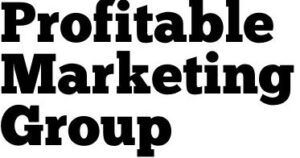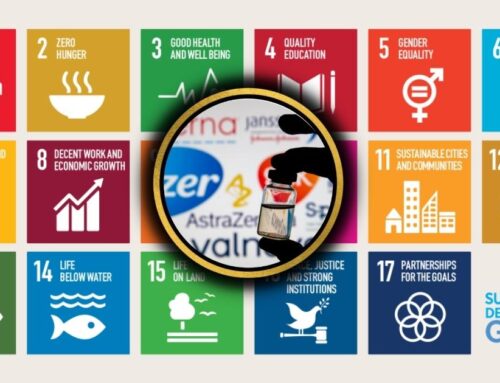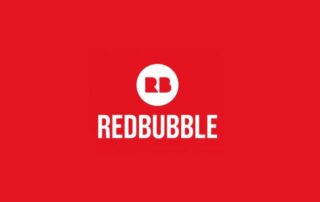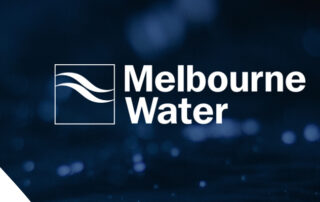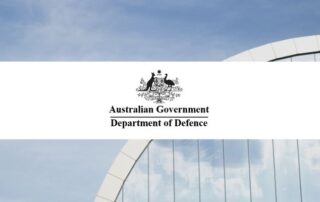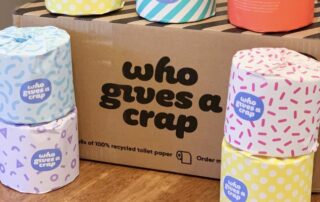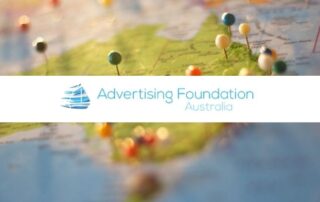Keshan Warakaulle
How much are you influenced by environmentally friendly claims in your purchasing decisions?
Marketers are aware that consumers are increasingly taking the product’s environmental impact into account when making decisions.
However, how precisely eco-friendly are the products you are purchasing? And to what extent are the lofty “green” claims made by marketers in online advertisements true?
A product may be described in the advertisements as “sustainable,” “green,” or “environmentally friendly.” Alternatively, they may include emojis like or
Maybe the beautifully earthy “green” colour scheme that dominates the advertisement gives off “environmental” ideas.
However, what does a phrase like “sustainable” or an emoji for recycling signify in the context of an advertisement? Most of the time, ‘not much at all’.
The Research Study
Research on environmental claims in advertising was done through the Australian Ad Observatory project, which is managed by the ARC Centre of Excellence for Automated Decision-Making and Society (Burgess, 2022). Using a massive dataset of Facebook ad observations, an audit of advertising claims uncovers the common strategies used by advertisers to persuade you of their green credentials.
Researchers sifted through the advertising that Facebook users have supplied and discovered hundreds of advertisements, with an estimated 20,000 views, for commercial products that claimed to be environmentally friendly. The dataset was dominated by advertisements for energy-related products as well as fashion, health, and personal care items (Briggs, 2023).
Whilst no specific advertisement was suggested as being false or misleading [legally controlling such claims is why the Australian Competition and Consumer Commission (or ACCC) was set up], the combined dataset exposed the most often made claims as well as how marketers may skirt the law and give their products a ‘green’ feel without ever having to defend it.
A “Green Halo”
According to Ms. Chandni Gupta, deputy chief executive of the Consumer Policy Research Centre (CPRC):
“There is a mix of the terms, the imagery, colours, and even emojis that, when you put them all together, they create a real green halo effect. It can give the impression that something might be more environmentally friendly than it actually is.”
“The majority of advertisements are vague, unhelpful, and really unclear overall. It’s really hard to put two products side by side that have used the same green claims and be confident that they’re offering the same thing.”
Clean, Green, And Sustainable: The Unholy Trinity of False Claims
According to lead researcher of the Australian Ad Observatory project, Professor Christine Parker, the dataset analysis reveals that “clean,” “green,” and “sustainable” are the three terms that businesses most frequently employ when making claims (Nickels, 2023).
“Some advertisers are using vague wording alongside green imagery to give an impression of environmental action – but with no clear information or substantiation of exactly what the company is doing to achieve its environmental and climate promises or how the product is contributing to a circular economy.”
Commonly employed colour schemes of green, blue, and beige depicted scenes from nature or the ocean. In order to give advertisements a “green” feel, emojis were also widely employed; the most popular ones were of leaves, the earth, and the sun.
Another often-used emoji was the “Mobius loop” symbol ♻, which is commonly understood to represent recycling. Advertisers will occasionally utilise it to highlight things that are actually recyclable, but there are also numerous instances where it is exploited carelessly (Briggs, 2023).
In a recent audit, the ACCC found that more than half of organisations advertising online made concerning claims about their environmental or sustainability practices (ACCC, 2023).
The CPRC found similar results in a 24-hour sweep of online advertising conducted in 2022. The CPRC also found that many consumers believe some authority is checking green claims before they are made – which is not in fact the case (CPRC, 2022).
National Guidelines on Advertising
While there are national guidelines regarding the symbol’s use in on-package labelling, using emojis in advertisements is not subject to those guidelines. Businesses will occasionally make accurate claims in their advertising. However, the manner in which they are presented could mislead consumers into believing the claim to be more important than it actually is.
For instance, the researchers discovered product photos accompanied with “sustainable packaging” promotions from the beauty shop MECCA. However, upon further investigation, they claim to have found that the “sustainable packaging” had nothing to do with the product itself, but rather was the material used to ship it to a client (Briggs, 2023).
Note that a product may be considered sustainable if only a portion of it is recycled or if it is composed of recycled materials but is not recyclable. It can imply that while the product itself is recyclable, its packaging is not. It might even imply that the shipping box it comes in is the only recyclable part of it.”
Advertisements that Mislead or Deceive
Although Australian law forbids corporations from deceiving consumers, many are being duped by advertisements with ambiguous green promises — and because of this, it is very difficult to prosecute these advertisements. Also, products with a green claim will often be sold at a higher price point, which could mean that buyers are paying extra for a product that falls short of their expectations.
As such, environmental claims are attracting the attention of regulators such as the ACCC, which earlier this year performed a “sweep” of advertising and discovered numerous cases it is currently looking into. The ACCC has been looking into these claims for some time (see Koku and Ratnatunga, 2013), but it has recently stepped up its efforts in the ‘greenwash’ space.
Ms. Catriona Lowe, the Deputy Chair of the ACCC has stated that the Commission has several ongoing investigations going on and green claims issues have been a compliance and enforcement priority since July 2023.
“We know that consumers are conscious of their environmental impact and are seeking to make choices that minimise impact on the environment. We did find in the online sweep that whilst these sorts of claims were widespread, there were particular sectors where we saw more concerning claims, and some examples of those are cosmetics, food packaging, and retailing and household products.”
For example, the ACCC discovered that Yoghurt brand MOO had been falsely advertising that their tubs were composed of “100% ocean plastic” for at least two years, despite the fact that the plastic resin used to create the packaging was actually gathered from Malaysian coastal regions rather than the ocean. MOO acknowledged that the packaging probably violated Australia’s consumer laws and has since consented to a legally binding commitment to modify deceptive wording on its packaging (Briggs, 2023).
The Law is Back-to-Front
The Australian Consumer Law is very helpful in relation to green claims in so far as it does prohibit conduct that is likely to mislead or deceive consumers. However, there can be a gap between something that is vague and confusing, and that is misleading to the legal standard.
As such, draft guidelines for advertising making green claims were released by the ACCC in early 2023; final recommendations are anticipated before the end of the year.
It is ACCC’s view that once it has provided clarity and outlined to the community what its expectations are, it would expect businesses to do their part in taking up those guidelines and making sure that the claims they are making are clear and that they can be substantiated.
However, according to Professor Christine Parker, the nature of the law is the ‘wrong way around’ as it limits the authority of regulators.
“At the moment, our tool for addressing greenwashing is the prohibition on misleading and deceptive conduct. You have to wait for a business to make a misleading claim, someone has to complain about it, somebody has to investigate it … and ACCC has to prove that they made a specific representation that was false or misleading.
What the government should be legislating is that before businesses make a claim in advertising, especially on green issues, they are required to define those claims, and there is evidence behind those claims that can be audited (verified) if required by the ACCC.
Ms. Chandni Gupta, of the Consumer Policy Research Centre, wants to go further:
“We need to see a ban, or definitions on generic environmental claims so that there’s a clear and shared understanding of what these actual claims mean. You should be able to pick up something that says “eco”, “bio”, “sustainable”, and be really confident with what it is … we don’t have that at the moment.”
According to her, it might resemble regulations pertaining to food marketing, such as the way “fruit juice” is a controlled phrase that mandates a minimum quantity of real fruit in a beverage (Briggs, 2023).
Both the United Kingdom and the European Union are considering similar regulations.
References
ACCC (2023), “Greenwashing by businesses in Australia Findings of the ACCC’s internet sweep of environmental claims”, Australian Competition and Consumer Commission, March, pp.1-10.
Briggs, Casey (2023), “New research finds advertisers are regularly making meaningless claims that their products are ‘clean’, ‘green’, and ‘sustainable’”, ABC News, December 1. https://www.abc.net.au/news/2023-12-01/advertisers-claim-products-clean-green-sustainable-consumers/103172196
Burgess, Jean; Andrejevic, Mark; Angus, Daniel; and Obeid, Abdul Karim (2022), Australian Ad Observatory: background paper, ARC Centre of Excellence for Automated Decision-Making and Society, 15 July. https://apo.org.au/node/318616.
CPRC (2022), “The consumer experience of green claims in Australia”, Consumer Policy Research Centre, December, pp. 1-32
Koku, Paul Sergius, and Ratnatunga, Janek (2013), “Green Marketing and Misleading Statements: The Case of Saab in Australia”, Journal of Applied Management Accounting Research, 11(1):1–8.
Nickels, Kathy (2023), “Research investigates “greenwashing” advertising on social media”, ADM—+S, 8 March, https://www.admscentre.org.au/research-investigates-greenwashing-advertising-on-social-media/
Keshan Warakaulle is the Media Manager at ICMA(ANZ)
